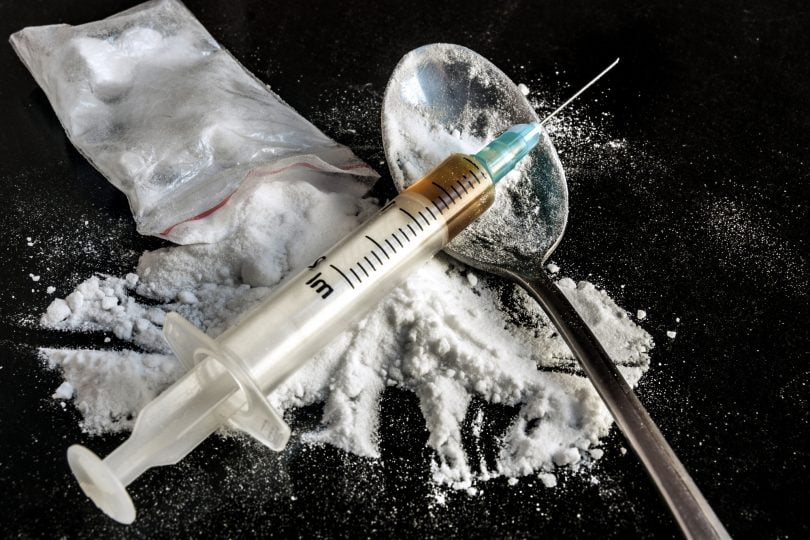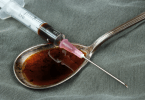In 2016, there were around 948,000 US citizens who admitted to using heroin within the past year. That number has been on the rise since 2007.
And those were just the people who admitted to being a user.
As the opioid epidemic becomes worse, it’s leading to people dying of drug overdoses. Out of the 52,404 lethal drug overdoses in 2015, 20,101 of them were related to prescription pain relievers.
12,990 of those deaths were due to heroin.
Heroin addiction is no joke. And it’s not easy to handle it on your own. You need help.
If you’ve decided enough is enough, it’s time to quit. To help you understand the process, here’s what to expect when you’re going through a heroin withdrawal.
The Beginning Of Heroin Withdrawal
The longer you’ve been using heroin, the more likely it is that you’ll experience withdrawal symptoms. Most addicts ask how long does heroin withdrawal last because it’s not exactly a comfortable experience.
The initial comedown experienced by those withdrawing from heroin varies in both time and intensity.
Typically, you’ll notice symptoms beginning somewhere between six and 12 hours after you stop using. It tends to peak within one to three days and then gradually subsides somewhere between five and seven days.
However, it’s not unusual for some users to experience weeks and even months of withdrawal symptoms. This is known as post-acute withdrawal syndrome (PAWS).
Short-Term Withdrawal Symptoms
When you’re detoxing from heroin, the first six to 12 hours are difficult. There are several symptoms you might experience such as a runny nose and dehydration.
But there’s more, here are a few other symptoms that might show up:
- Excessive secretion of tears
- Restlessness
- Insomnia
- Uncontrollable yawning
- Excessive sweating
- Muscle aches and spasms
- Aggression
- Mood swings
- Irritability
- Inability to concentrate
Most short-term effects are physical. As a result, you’ll feel better and stay safer if you choose to start your heroin withdrawal while under the care of a doctor.
Long-Term Withdrawal Symptoms
You might believe that if you can just make it through the first set of symptoms, you’ll be fine. Unfortunately, the next set of symptoms tend to last longer and feel more intense.
Since these symptoms vary from person to person, it’s hard to tell how long your heroin withdrawal will last.
And while the short-term withdrawal symptoms are mostly physical, the long-term symptoms are mental and physical.
Many people suffer from depression and anxiety. But high blood pressure, hyperactivity, and even paranoia are also common.
So are intense drug cravings and relapse. It’s so important to receive proper medical care and have a support system in place to help you fight back and relieve these cravings so you can begin to feel well again.
Usually, these long-term symptoms begin to improve after three or four days and within a week or so, most people feel better.
Physical Symptoms Of Heroin Withdrawal
Heroin addiction affects both your mind and body. Which means, it’s possible to experience withdrawal symptoms that affect either your mind or body.
When going through a heroin detox, common physical symptoms include:
- Excessive body fluids (tears, runny nose, sweat)
- Nausea
- Abdominal pain
- Tremors or shaking
- Yawning Excessively
- Muscle cramping
- Rapid heart rate
- Hypertension
- Drug cravings
- Aches and chills
- Vomiting and nausea
- Diarrhea and stomach pain
- Goosebumps
- Fever
Emotional And Psychological Symptoms
While there are usually over-the-counter medicines you can take to ease certain physical symptoms of a heroin withdrawal, dealing with the emotional struggles is sometimes harder.
Make sure you have a physician or therapist on hand to help guide you through your heroin detox safely.
It’s possible you’ll experience agitation or irritability as your body weans itself off the drug. You’ll also notice difficulty concentrating and feeling as though you’re mentally ill. Depression and anxiety are common.
Since you used to use heroin to feel pleasure, as you’re detoxing, you may find it difficult to find things pleasurable for the time being.
You may also have trouble sleeping but feel exhausted all the time. Mood swings and restlessness are also common. So is isolating yourself. If you find you’re avoiding people while going through a detox, reach out to find the support you need.
How To Detox From Heroin
Those searching for ways on how to detox from heroin will often seek out places that facilitate an ultra rapid opiate detox, a drug detox under anesthesia but ultimately find that the cost is too high ($15,000+) and the risks are to dangerous. A The most effective way to detox from heroin is to enter a drug rehabilitation facility. It’s the safest option for anyone trying to maintain their physical and mental health.
Also, those who choose to be medically assisted during their detox have higher success rates than those who choose other methods. Some methods, such as getting off heroin cold turkey can actually become life-threatening if not done under the care of a physician.
There are home detox kits for those who feel they can’t afford rehab. Those kits contain vitamins, herbs, and minerals that can help deal with physical symptoms.
However, what these home kits can’t address are the psychological and behavioral issues that lead to the addiction in the first place.
Why You Should Seek Professional Care
Trying to detox on your own is incredibly difficult and you’re far less likely to successfully and fully kick your habit.
It’s much safer and you’re more likely to prevent a relapse when you seek out professional help.
They will monitor your entire process and create a structured rehabilitation program that’s been created based on your needs and requirements.
At rehab, you’ll also have access to nurses, psychiatrists, and even nutritionists. All of whom can help you look and feel better no matter how long the detox process takes for you.
They can also monitor your conditions and prescribe safe medications to help minimize your pain and manage any cravings.
How To Select The Right Treatment For You
You have options when it comes to getting help with your heroin withdrawal. There are various rehab centers available to help everyone.
You can choose an inpatient detox center where you’ll receive 24-hour supervision.
Then there’s outpatient care where you can remain at home but still receive medical monitoring. While you’re more vulnerable to relapse and there isn’t 24-hour care, it’s helpful for those who can’t afford to lose work or leave their families.
There are also holistic programs. They’ll focus on spiritual counseling, yoga, and acupuncture.
Our site can help. Whether you’re looking for a private facility or one who accepts Medicaid or Medicare, you’ll find it here.
If you’ve served our country, click here to find a military substance abuse facility.

















